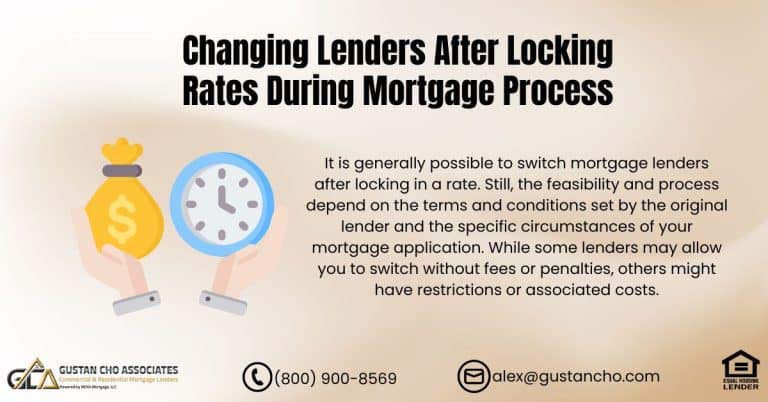Role of a Mortgage Loan Coordinator: Why They Matter in 2025
When you apply for a mortgage, you’ll notice very quickly that it takes more than one person to get your loan approved and closed. Loan officers, processors, underwriters, and title companies all play a part. But there’s one person who often makes the biggest difference in keeping the process smooth: the mortgage loan coordinator.
The role of a mortgage loan coordinator is to act as the “quarterback” of the mortgage file. They make sure documents are complete, deadlines are met, and nothing slips through the cracks. Without them, many loan applications would hit delays, suspensions, or denials.
In this guide, you’ll learn everything you need to know about the role of a mortgage loan coordinator in 2025, how they work behind the scenes, and why having a great one can make or break your mortgage experience.
What Is the Role of a Mortgage Loan Coordinator?
The role of a mortgage loan coordinator is to guide your loan file from the moment you apply until the moment you close. They aren’t the salesperson like a loan officer, and they aren’t the underwriter making the final approval decision. Instead, they are the bridge that connects everyone together.
Mortgage loan coordinators:
- Collect and organize borrower documents.
- Make sure nothing is missing before submitting the file.
- Communicate with loan officers, processors, underwriters, and title companies.
- Order key items such as appraisals, title, and FHA case numbers.
- Keep borrowers updated so they aren’t left in the dark.
Think of them as the traffic controller of the mortgage process. Without them, the system could easily jam up.
Your Mortgage Loan Coordinator Matters
They keep your loan on track from start to finish.
Why Is the Role of a Mortgage Loan Coordinator So Important?
The mortgage process involves dozens of moving parts. If even one piece is missing, your file can be delayed or suspended. That’s where the loan coordinator steps in.
Here’s why their role is critical in 2025:
- Preventing delays: Missing bank statement pages, unsigned forms, or outdated pay stubs can cause an underwriter to push your file aside. A loan coordinator catches these issues before they cause problems.
- Keeping the process moving: They make sure appraisal orders, insurance, and title work are ready on time.
- Supporting the loan officer: This allows loan officers to focus on serving clients and bringing in new business while coordinators handle the details.
- Improving borrower experience: They keep you updated, reduce stress, and ensure you don’t have to scramble at the last minute.
Simply put, the role of a mortgage loan coordinator is to save time, reduce headaches, and make sure your closing happens smoothly.
Daily Duties of a Mortgage Loan Coordinator
The job may look simple from the outside, but behind the scenes, loan coordinators juggle dozens of responsibilities every day.
Common Tasks Loan Coordinators Handle:
- Reviewing mortgage applications for completeness.
- Ordering appraisals and following up with appraisers.
- Coordinating with title companies to order title insurance.
- Collecting proof of homeowners’ insurance.
- Ensuring government requirements are met (such as ordering an FHA case number).
- Checking documents line by line to avoid missing pages.
- Communicating with borrowers, agents, and other professionals daily.
The role of a mortgage loan coordinator requires attention to detail and strong communication skills. They’re often the unsung heroes who prevent last-minute surprises.
Difference Between a Loan Officer, a Loan Processor, and a Loan Coordinator
Many borrowers often find themselves puzzled about the roles of different professionals involved in the loan process. At the forefront is the Loan Officer (LO), a licensed expert who assists borrowers in selecting the most suitable loan options and facilitates the application process. The LO’s primary focus is on sales and providing guidance to ensure that borrowers make well-informed decisions.
In contrast, the Loan Processor operates behind the scenes, diligently reviewing the borrower’s income, assets, and credit history to prepare the necessary documents for underwriting.
Meanwhile, the loan coordinator plays a crucial role as the link between all parties involved. They are responsible for collecting, checking, and organizing documents while ensuring that the Loan Officer, processor, underwriter, title company, and borrower maintain clear and effective communication throughout the process.
The role of a mortgage loan coordinator is unique because they keep all these professionals aligned. Without them, communication breakdowns are common.
What Makes a Great Mortgage Loan Coordinator?
Not all coordinators are created equal. A good coordinator will check for missing documents. A great coordinator will go the extra mile by:
- Reading every page of every document to make sure nothing is missing.
- Proactively reaching out to borrowers instead of waiting until the last minute.
- Building trust and relationships with borrowers so they feel supported.
- Anticipating underwriter conditions before they even come up.
For example, if a borrower provides a three-page bank statement and only two pages are uploaded, a great loan coordinator will immediately request the missing page. This prevents the file from being suspended later.
In 2025, with tighter timelines and competitive housing markets, a great loan coordinator can make the difference between closing on time or losing a home.
Behind Every Smooth Loan Is a Coordinator
From paperwork to deadlines, they make the process stress-free.
Case Scenario: Why Loan Coordinators Matter
Imagine you’re buying a home and your closing date is just around the corner. You’ve provided all your paperwork, but the underwriter notices a missing page from your divorce decree.
Without a loan coordinator, your file could be placed in suspense until you provide it again, costing you valuable time and possibly risking your closing.
With a strong loan coordinator, this issue would have been caught and resolved long before the file reached the underwriter. This is the role of a mortgage loan coordinator in action: preventing problems before they become delays.
Career Path: Becoming a Mortgage Loan Coordinator in 2025
Many people searching for the role of a mortgage loan coordinator are also job seekers curious about career opportunities.
Here’s what you should know if you’re considering this career:
- Skills required: Organization, communication, attention to detail, and customer service.
- Experience: Many coordinators start in customer service, processing, or as assistants to loan officers.
- Training: On-the-job training is common, but knowledge of mortgage guidelines is a big plus.
- Salary: In 2025, loan coordinators typically make around $45,000 to $70,000 a year, depending on their experience and the job market.
- Growth: Many coordinators move into processing, underwriting, or even become licensed loan officers.
How Loan Coordinators Improve the Borrower Experience
For borrowers, the mortgage process can feel overwhelming. A great coordinator makes it easier by:
- Giving clear checklists of documents needed.
- Answering questions quickly when something seems confusing.
- Helping reduce stress by keeping everything on track.
- Acting as your point of contact when the loan officer is busy.
The role of a mortgage loan coordinator is more than paperwork—it’s about guiding families to the closing table with confidence.
Role of a Mortgage Loan Coordinator in High-Volume Teams
In smaller shops, loan officers sometimes handle their own coordination work. However, in high-volume mortgage companies, coordinators are essential. They free up top-producing loan officers to focus on client relationships while coordinators quarterback the files.
At Gustan Cho Associates, for example, top producers rely heavily on their coordinators to ensure every borrower has a smooth experience. Coordinators like Angie Torres, the National Operations Director, are proof that when done right, the role is priceless.
Final Thoughts
The role of a mortgage loan coordinator is one of the most valuable in the mortgage industry. They aren’t always the most visible, but they are the backbone of a smooth loan process. From preventing delays to making borrowers feel supported, coordinators are the glue that holds everything together.
In 2025, with housing markets competitive and mortgage guidelines tighter than ever, a strong loan coordinator can be the difference between a stressful loan experience and a seamless closing. Whether you’re a borrower looking for support or a professional considering this career, understanding the role of a mortgage loan coordinator is key to appreciating just how important they are in the mortgage world.
Our team and staff at Gustan Cho Associates are not grateful to have Angelica Torres as our National Operations Director and in charge of our mortgage loan coordinator training program. Still, they are blessed to have such an outstanding team player and leader as part of our growing team of the finest mortgage professionals in the industry. The role of mortgage loan coordinator is priceless and top producing loan officers need a dependable hard working experienced mortgage loan coordinator.
Stay Organized. Stay Approved.
Learn how loan coordinators guide borrowers through the mortgage journey.
Start Your Application With Expert Support Now
Frequently Asked Questions About the Role of a Mortgage Loan Coordinator:
Q: What is the Main Role of a Mortgage Loan Coordinator?
A: They ensure loan files are complete, organized, and ready for processing and underwriting.
Q: Do All Mortgage Companies Use Loan Coordinators?
A: Not all. Smaller lenders may not have them, but high-volume lenders usually do.
Q: How Does a Loan Coordinator Help Borrowers?
A: They keep the process on track, prevent delays, and make sure borrowers know what’s happening at every step.
Q: Is a Loan Coordinator the Same as a Processor?
A: No. A processor prepares the loan for underwriting. A coordinator organizes the file and manages communication between all parties.
Q: What Skills are Needed to be a Good Mortgage Loan Coordinator?
A: Attention to detail, organization, communication skills, and knowledge of loan documents.
Q: Can a Loan Coordinator Become a Loan Officer?
A: Yes. Many coordinators eventually pursue licensing to become loan officers.
Q: Do Coordinators Work Directly with Underwriters?
A: Yes. They often resolve document issues and ensure the underwriter has what they need.
Q: What Happens if There is No Loan Coordinator?
A: The loan officer or processor has to take on extra duties, which can lead to delays or mistakes.
Q: Do Coordinators Help with Government Loans like FHA or VA?
A: Yes. They handle ordering FHA case numbers and VA appraisals and make sure guideline documents are included.
Q: How Does the Role of a Mortgage Loan Coordinator Benefit Realtors?
A: They keep transactions on track, reducing stress for agents who need their buyers to close on time.
This article about the “Role of a Mortgage Loan Coordinator in The Mortgage Process” was updated on August 25th, 2025.
Faster Closings. Less Stress. More Confidence.
Loan coordinators handle the details so you can focus on your new home.










